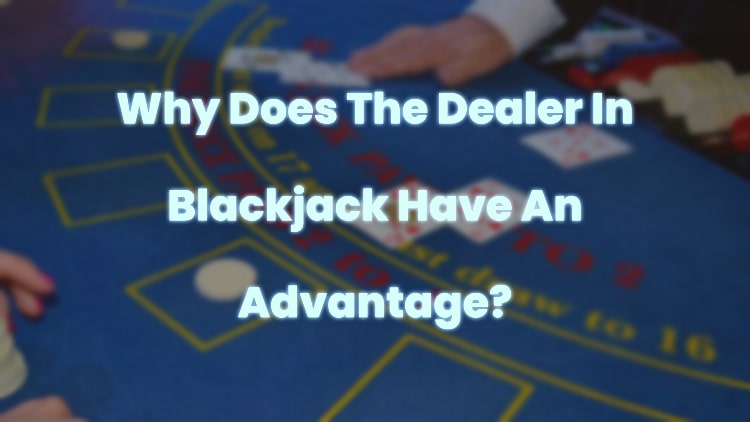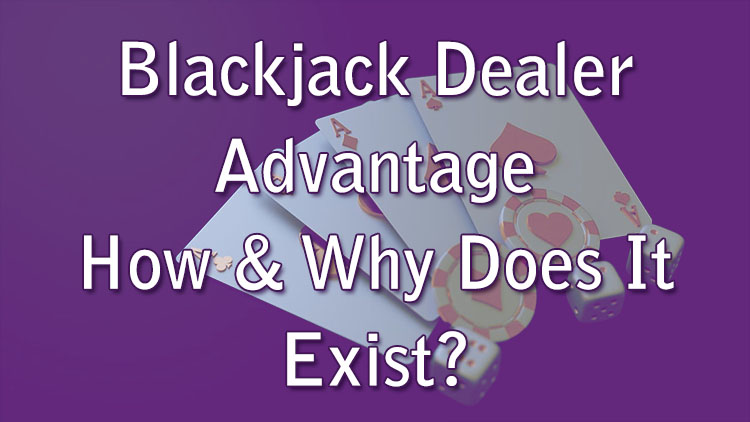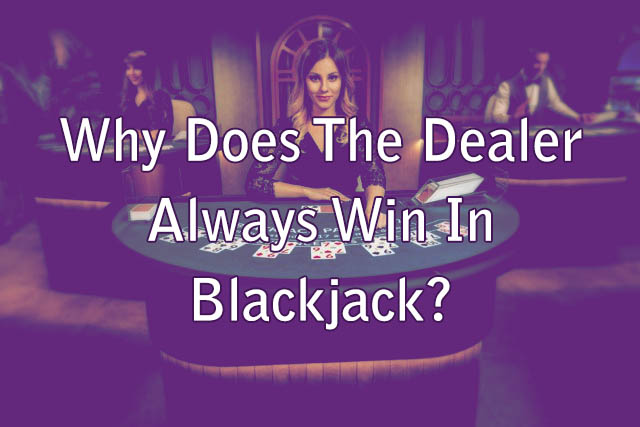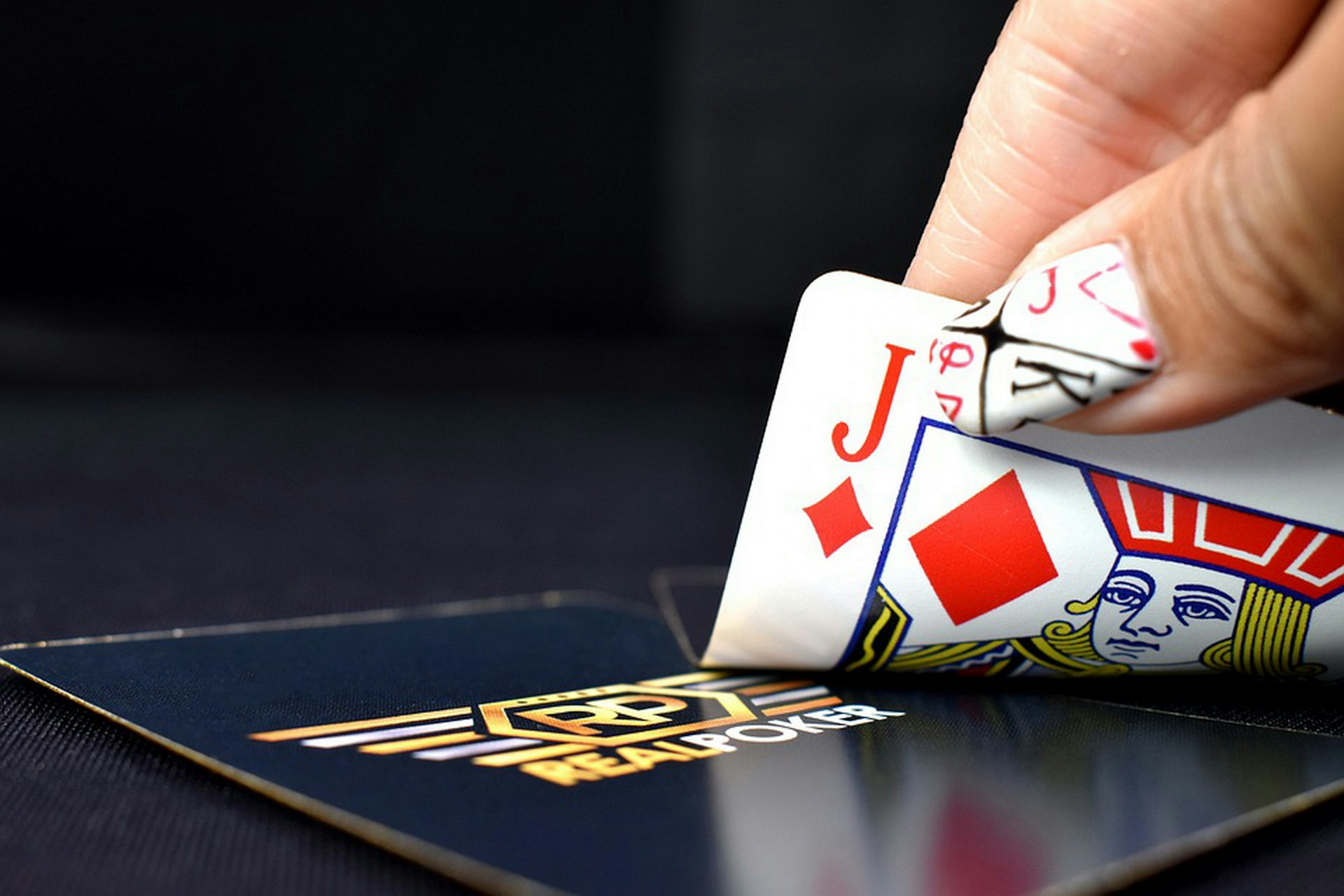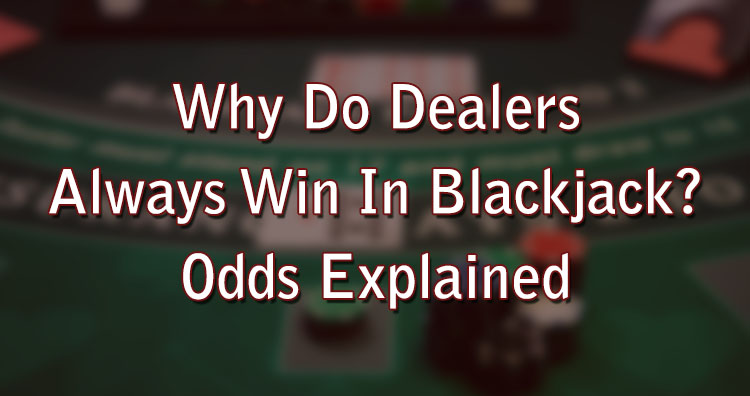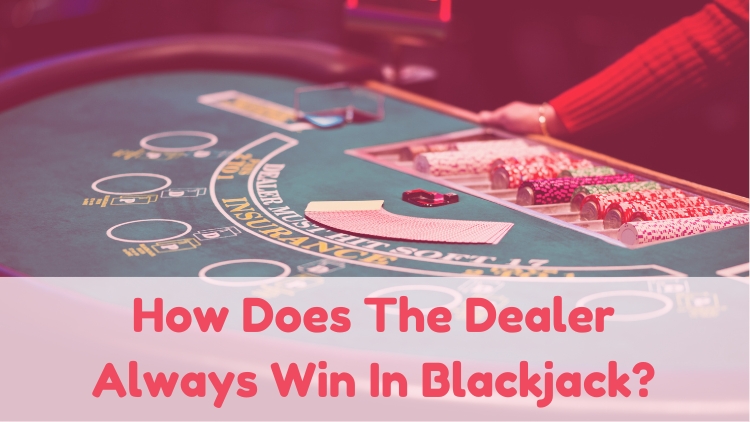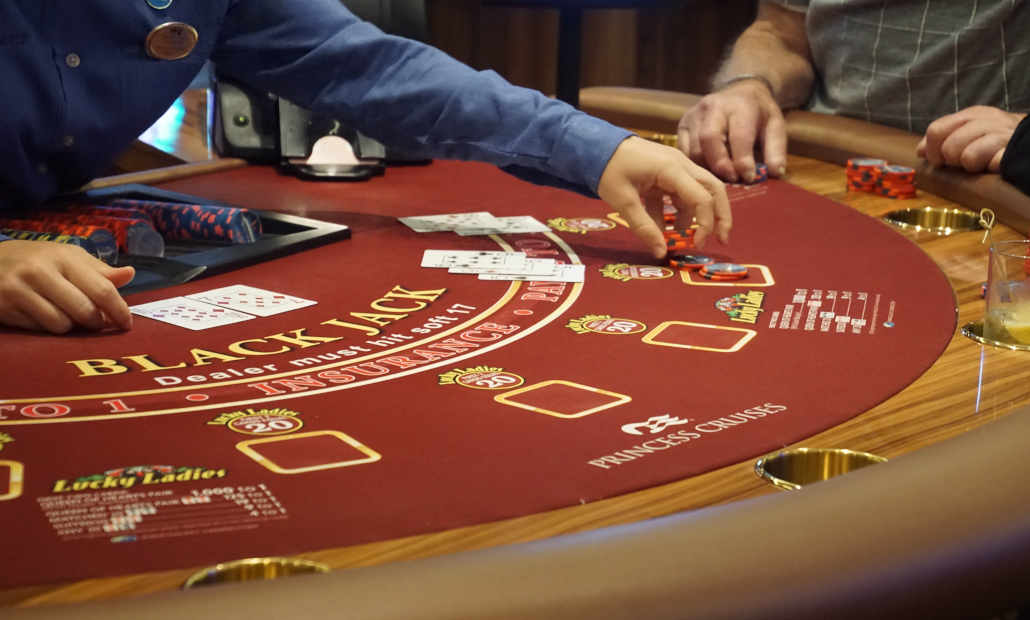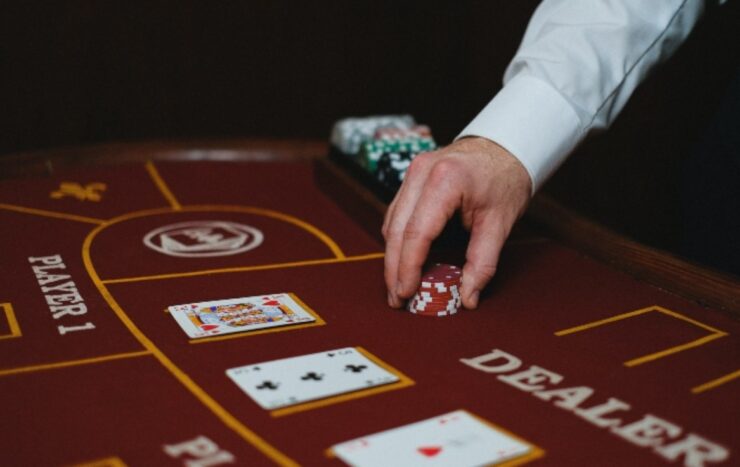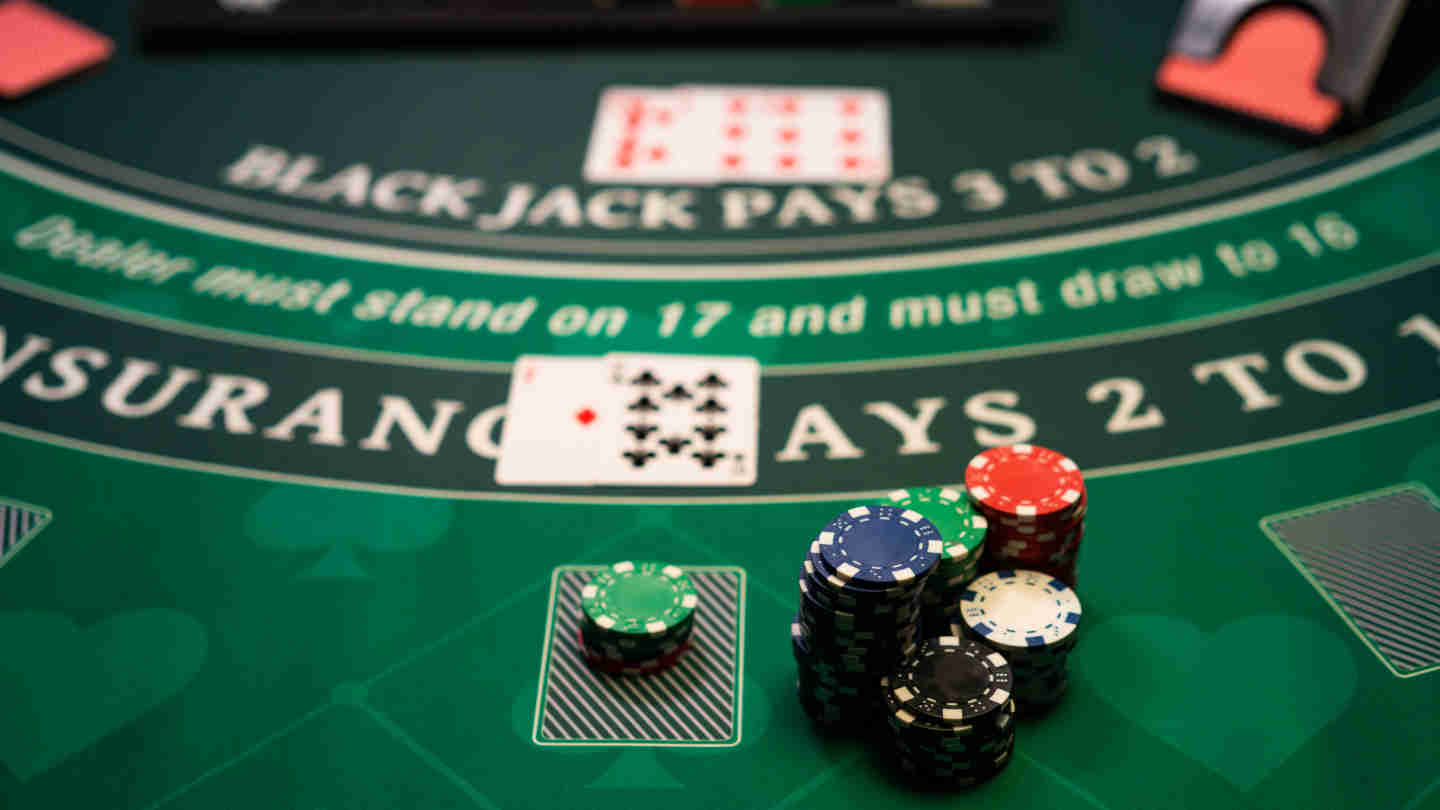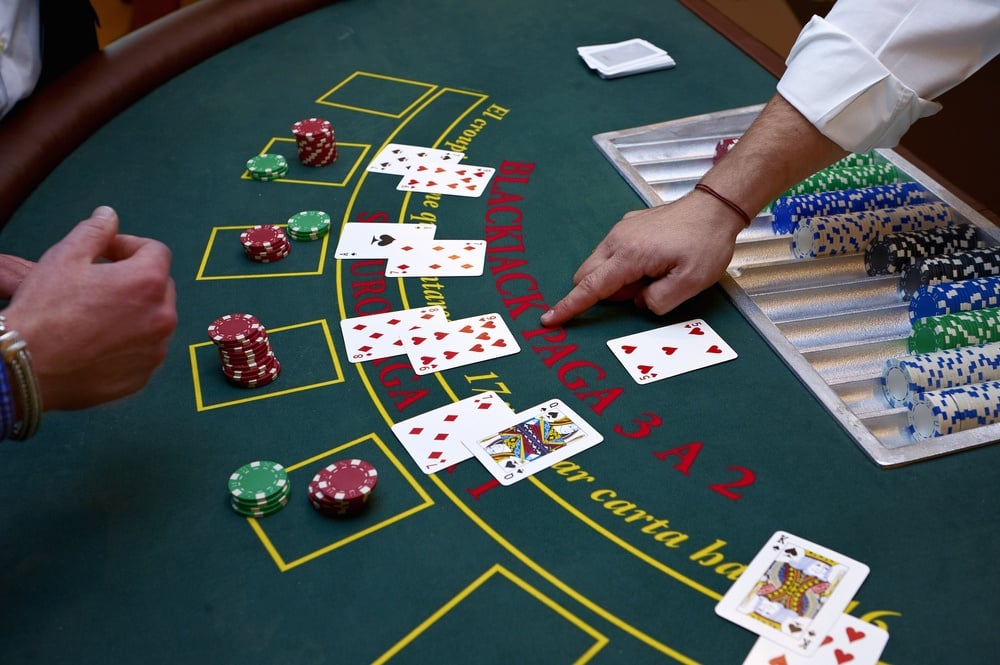Why Does The Dealer Have An Advantage In Blackjack

The allure of blackjack lies in its perceived simplicity and the sliver of hope it offers against the house. Yet, behind the flashing lights and the shuffling of cards, a persistent question echoes: why does the dealer, the gatekeeper to your potential winnings, inherently hold an advantage? This isn't mere superstition; it's a mathematical reality meticulously woven into the rules of the game.
This inherent edge, often referred to as the house advantage, stems primarily from one fundamental rule: players must act before the dealer. This article delves into the mechanics that grant the dealer this advantage, exploring the statistical implications and debunking common misconceptions surrounding blackjack strategy.
The Dealer's Fixed Play: A Double-Edged Sword
The dealer's actions are rigidly defined, eliminating any element of strategic flexibility. They must hit on any hand totaling 16 or less and stand on any hand totaling 17 or more. This seemingly simple rule is the cornerstone of the dealer's advantage.
Consider this: a player who hits on a 16 against a dealer showing a 7 has a reasonable chance of improving their hand. However, they also risk busting. The dealer, bound by the 17 rule, faces the same risk, but only after the player has already acted.
If the player busts, they automatically lose, regardless of the dealer's subsequent hand. This "bust-first" rule is the single biggest factor contributing to the house edge in blackjack.
The Bust-First Rule: Quantifying the Damage
Statistical analyses have consistently demonstrated the significant impact of the bust-first rule. Studies by gaming mathematicians and organizations like the Wizard of Odds have quantified this advantage. They concluded that it contributes several percentage points to the overall house edge.
Essentially, the player's risk of busting provides the dealer with a safety net. The player's bad luck translates directly into profit for the house. This is before the dealer even plays their hand.
Card Values and the Dealer's Upcard
The value of the cards in blackjack also contributes to the dealer's inherent advantage. The prevalence of 10-value cards (10, Jack, Queen, King) in the deck increases the likelihood of both players and dealers busting.
The dealer's upcard plays a crucial role. A dealer showing a low card (2-6) forces the player to make difficult decisions about hitting or standing. This decision must be made with the uncertainty of the dealer’s face-down card looming.
Conversely, a dealer showing a high card (7-Ace) puts pressure on the player to improve their hand, increasing the likelihood of busting. The dealer's upcard provides a significant informational advantage.
Basic Strategy: Mitigating, Not Eliminating, the Edge
Basic strategy, a mathematically derived set of rules dictating the optimal play for every possible hand combination, is often touted as a way to beat the dealer. While basic strategy significantly reduces the house edge, it doesn't eliminate it.
Basic strategy allows players to make statistically sound decisions, minimizing their losses over the long run. It optimizes the chance of success. This is against the fixed rules the dealer must follow.
However, basic strategy cannot overcome the fundamental disadvantage created by the bust-first rule. It is an important tool, but it is not a guaranteed win.
The Role of Card Counting
Card counting is a more advanced technique that aims to track the ratio of high-value cards to low-value cards remaining in the deck. This information is used to adjust bet sizes and playing decisions, theoretically shifting the odds in the player's favor.
However, card counting is a complex and demanding skill. It requires significant memory, concentration, and the ability to remain undetected by casino staff.
Moreover, casinos actively discourage card counting and may take measures to prevent it, such as shuffling the deck more frequently or barring suspected counters from playing. It is not a foolproof strategy.
Blackjack Variations and House Edge
Different variations of blackjack can significantly impact the house edge. Rules such as the number of decks used, the payout for blackjack (3:2 or 6:5), and whether the dealer hits or stands on a soft 17 all influence the game's profitability.
A 6:5 payout for blackjack, for example, drastically increases the house edge compared to the standard 3:2 payout. Always check the specific rules of the game before playing.
Understanding the variations and their impact is crucial for making informed decisions and maximizing your chances of winning.
Beyond the Math: The Psychology of the Game
While mathematics underpins the dealer's advantage, the psychology of the game also plays a role. Casinos are designed to encourage players to gamble and to make impulsive decisions.
Factors such as the availability of alcohol, the absence of clocks, and the constant flow of stimuli can all contribute to poor decision-making. Emotional control is important.
Understanding these psychological influences is crucial for maintaining a rational approach to blackjack and avoiding costly mistakes.
Looking Ahead: The Future of Blackjack
The enduring popularity of blackjack suggests that players are willing to accept the inherent house edge in exchange for the potential for reward and the thrill of the game. As long as this tradeoff exists, blackjack will continue to thrive.
However, advancements in technology and analytics may lead to new strategies and approaches to the game. The balance of power between players and dealers may continue to evolve.
Ultimately, understanding the dealer's advantage is the first step towards playing blackjack responsibly and maximizing your enjoyment of this classic casino game. Knowledge is the best weapon.
